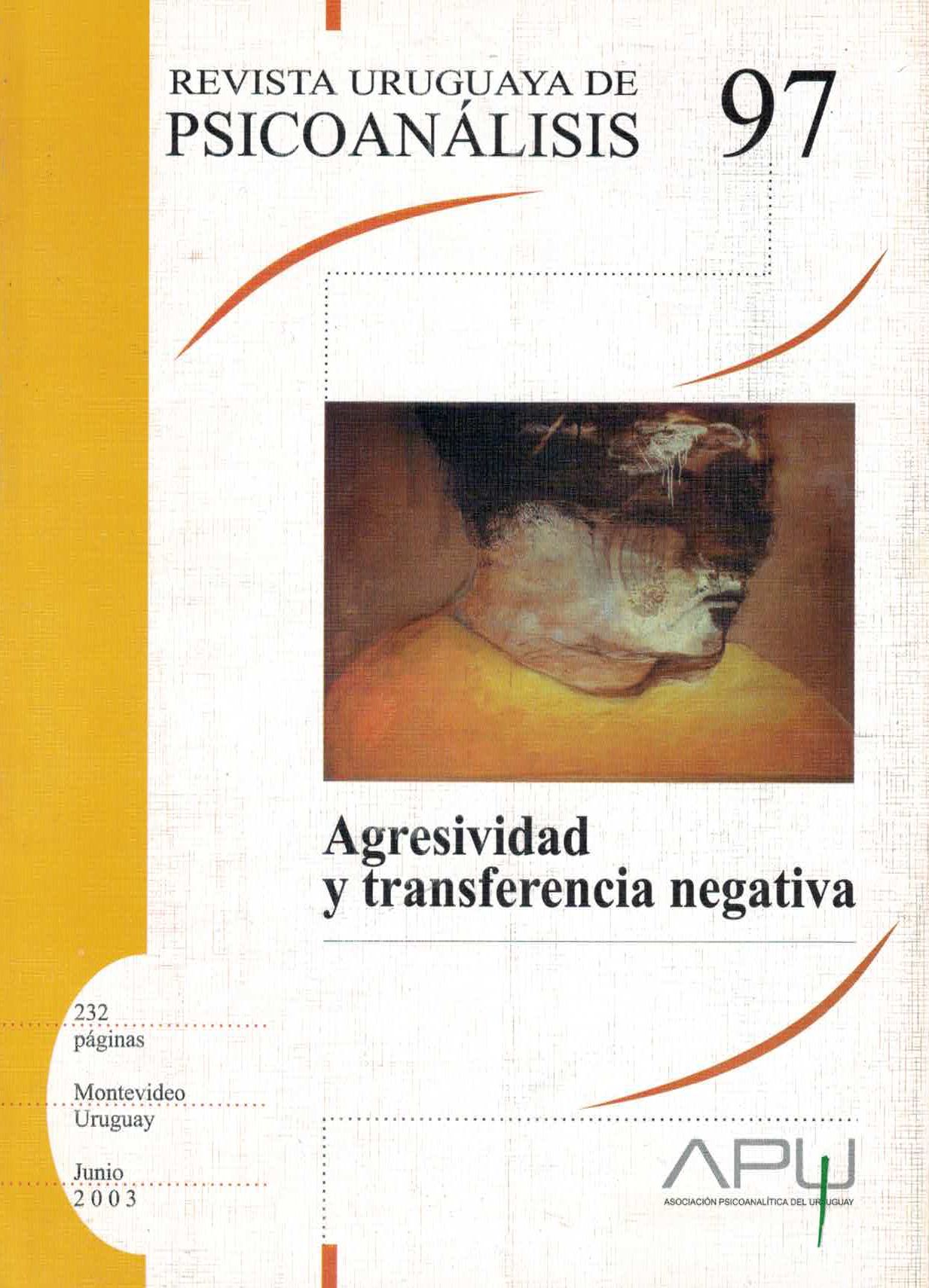Supervision; exercise of the paternal function in psychoanalysis
Keywords:
supervisión, función paterna, caso clínicoAbstract
From an analytic experience with a patient where the functioning of primitive areas of her mind prevail, the authors study some theoretical and technical suppositions and develop some ideas on the use of the paternal role in supervision.
The supervisor shows that she performs the obstructive, differentiating, symbolization paternal role, when she helps the supervisee to break the dual relationship (initial symbiosis) that occurs between patient and analyst. She observes, and participates in
those moments of the session when that symbiosis changes from “constructive” to “obstructive”. The essential paternal role, in the supervisor’s mind is metaphorically expressed, thus supporting the development of this role in the supervisee’s mind, during her
analytic training and favoring autonomy.
Downloads
References
ALVAREZ, A. (1994). Companhia Viva: psicoterapia psicanalítica com crianças autistas, borderline, carentes e maltratadas. Porto Alegre: Artes Médicas Sul.
BION, W. R. (1955). Language and the schizophrenic. New directions in psychoanalysis: the significance of infant conflict in the pattern of adult behaviour. London: Tavistock Publications.
————— (1962a). A Theory of Thinking. Second Thoughts: selected papers on psycho-analysis. London: Maresfield, 1987.
————— (1962b). Learning from experience. London: Maresfield, 1984.
————— (1963). Chapter fourteen. Elements of Psycho-Analysis. London: Maresfield, 1989.
————— (1966). Catastrofic Change. Attention and Interpretation. Ed. Heinemann, Londres: 1970.
BRITTON, R. (1989). O elo perdido: a sexualidade parental no complexo de Édipo. O Complexo de Édipo hoje. Porto Alegre: Artes Médicas, 1992.
EITINGON, M. (1923). Report of the Berlin Psychoanalytical Policlinic. Int. Journal of Psychoanalysis. 1923, t. 1-2, pp 254-69.
FREUD, S. (1905). Tres ensayos de teoría sexual. T.VII. Amorrortu Ed. 1978.
————— (1912). Consejos al médico sobre el tratamiento psicoanalítico. T. XII. Amorrortu Ed. Bs. As. 1980.
————— (1916-17). Conferencias de introducción al psicoanálisis. T. XVII. Amorrortu Ed. 1979.
GREEN, A. (1988). O conceito do fronteiriço. Sobre a loucura pessoal. Rio de Janeiro: Imago.
GRINBERG. L. (1975). A supervisión Psicanalítica: teoria e prática. Rio de Janeiro: Imago.
KERNBERG. O. (2001) Psicoterapia focalizada en la transferencia: psicodinámica de pacientes con organización de personalidad borderline. Una visión general. Rev. Psicoanal. Vol. 9 (1) p. 73-95.
KLEIN, M. (1928). Estadios tempranos del complejo edípico. Contribuciones al Psicoanálisis. Ed. Hormé. Bs. As. 1974.
————— (1946). Notas sobre algunos mecanismos esquizoides. Desarrollos en Psicoanálisis. Ed. Hormé. Bs.As. 1971.
MAHLER, M. (1974). Simbiose e Individuação: o nascimento psicológico do bebê. O Processo de Separación-Individuación. Porto Alegre, Artes Médicas, 1982.
OGDEN, T. (1989). Sobre o conceito de uma Posição Autista-Contígua. Rev. Bras. de Psic., 30(2), 1996.
PEREIRA GOMES, M. C. A. (2001). O nascimento de Édipo ou a importância da função paterna na configuração das famílias atuais. Trabalho apresentado no XVIII Congresso Brasileiro de Psicanálise, em São Paulo (2001).
RIBEIRO, M. M. M. (1997). Rêverie hostil y rêverie benigna. Rev. Bras. de Psic., 33(3), 1999 e Journal of Melanie Klein and Object Relations, 17(1), 1999.
————— (1999). Estesia no Cotidiano. Rev. Latino-americana de Psicanálise, vol, 3, nº. 1, 1999.
TUSTIN, F. (1990). Barreiras autistas em pacientes neuróticos. Porto Alegre, Artes Médicas.



 This work is licensed under a
This work is licensed under a 